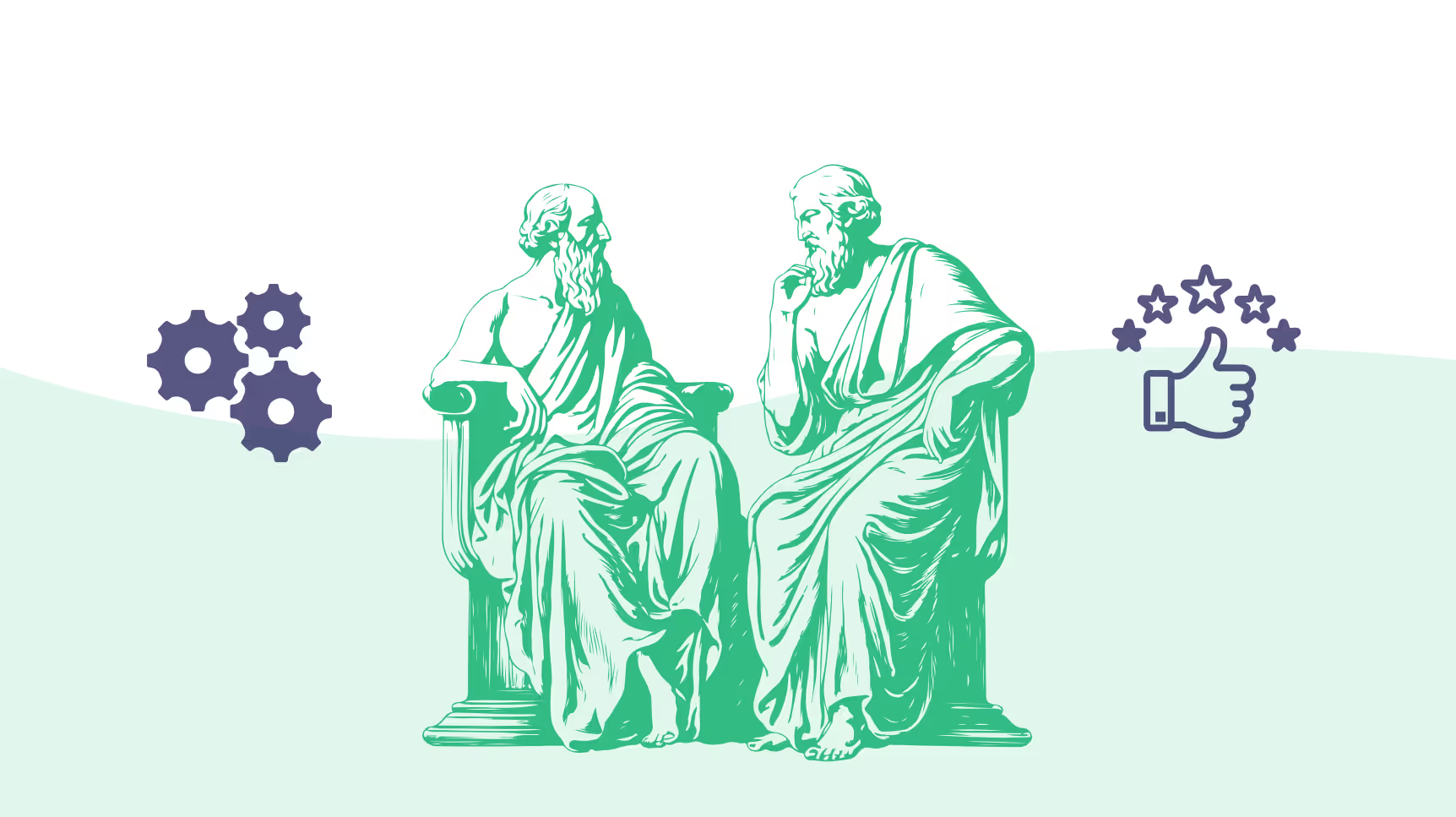
How Alexander the Great Would Build a High-Performing Contact Center
Ancient Strategy. Modern CX. Timeless Leadership.
Alexander the Great didn’t run a contact center.
(Though imagine the QA scorecards for a Macedonian cavalry unit.)
But if he did? He’d probably build one of the best-performing, most scalable, and most inspiring operations in the business.
Why? Because the leadership principles that allowed him to conquer most of the known world by age 30 are the same principles we see in today’s highest-performing CX teams.
Let’s explore what a Macedonian general can teach modern CX leaders—through a blend of ancient history, performance psychology, and modern operational excellence.
🧭 1. Clarity of Vision: “Eastward, always eastward.”
Alexander’s army marched thousands of miles across unfamiliar territory because they knew where they were going—and why.
In modern contact centers, vision is just as critical.
According to Daniel Pink (Drive), one of the top drivers of motivation is purpose. People perform better when they understand the why behind the what.
CX agents don’t just need targets—they need context:
- Why are we focusing on NPS this quarter?
- What does “customer-first” really mean in their day-to-day?
- How does their role contribute to the company mission?
💡 Alexander’s lesson: Don’t just set KPIs. Set a direction agents can believe in.
🛡️ 2. Empowered Autonomy: Trust the Phalanx
Alexander was known for empowering local commanders with decision-making authority on the battlefield. While his vision was centralized, execution was distributed.
This mirrors modern performance coaching models built on autonomy, a key pillar of Self-Determination Theory (Deci & Ryan, 1985). When agents feel trusted to solve problems on their own, motivation skyrockets.
Modern CX teams can apply this by:
- Giving agents flexibility in how they handle calls
- Encouraging judgment over script rigidity
- Involving agents in their own development plans
💡 Alexander’s lesson: Train for excellence. Then get out of the way.
🧠 3. Relentless Coaching: The Companion Cavalry Model
Alexander didn’t just bark orders—he rode into battle with his team. His “Companions” were elite fighters, constantly mentored, trusted, and trained.
The best CX leaders today do the same.
According to Gallup, teams with managers who coach rather than direct see 21% higher profitability and 20% higher engagement.
Leaders should:
- Use QA data to identify growth opportunities, not just mistakes
- Provide consistent feedback (not just performance reviews)
- Lead by example—modeling soft skills, empathy, and resilience
💡 Alexander’s lesson: The best leaders are part of the performance ecosystem—not above it.
🛠️ 4. Operational Excellence: Supply Chains Win Wars
Alexander’s conquests weren’t won by charisma alone. He had one of the most advanced logistics networks of the ancient world—ensuring his troops were fed, equipped, and supported across continents.
In the contact center, your logistics is your tech stack.
- Is QA integrated with performance tracking and coaching?
- Are agents jumping between tabs to find answers?
- Do your dashboards show live, actionable insights?
As MIT Sloan Management Review notes, high-performing teams are increasingly defined by their ability to act on real-time operational data.
💡 Alexander’s lesson: Morale matters—but infrastructure wins.
🌍 5. Cultural Adaptability: One Empire, Many People
Alexander didn’t just conquer—he adapted. He wore local dress, learned local customs, and brought diversity into his ranks.
Modern CX leaders must do the same.
Especially with global teams, diverse customers, and omnichannel environments.
According to Edmondson’s work on psychological safety, diverse teams thrive when all members feel valued, included, and heard.
This means:
- Localizing coaching approaches
- Adapting QA scorecards by channel or region
- Listening deeply to feedback from the frontline
💡 Alexander’s lesson: Build with your people, not just for them.
🏛️ Final Thought: Great CX Leadership is Ancient (and Future-Proof)
Alexander succeeded because he unified clarity of vision, trust in his team, and systems that scaled.
Today’s contact center leaders can learn a lot from his legacy:
- Inspire with vision
- Coach through trust
- Build systems that empower performance
- Adapt to those you serve
- Ride alongside your team—not above them
You don’t need a war horse.
You just need a QA platform that supports strategy, feedback, and growth at scale.
Want to build a contact center that would make Alexander proud?
Leaptree can help. No conquest required.
📚 References
- Deci, E. L., & Ryan, R. M. (1985). Intrinsic Motivation and Self-Determination in Human Behavior. Springer Science & Business Media.
- Pink, D. H. (2009). Drive: The Surprising Truth About What Motivates Us. Riverhead Books.
- Edmondson, A. C. (1999). Psychological Safety and Learning Behavior in Work Teams. Administrative Science Quarterly, 44(2), 350–383.
- Gallup. (2023). State of the Global Workplace Report. Retrieved from www.gallup.com
- MIT Sloan Management Review. (2023). Operational Agility: Turning Data into Action. Retrieved from sloanreview.mit.edu
- Cartledge, P. (2004). Alexander the Great: The Hunt for a New Past. Macmillan.
- Fox, R. L. (1973). Alexander the Great. Penguin Books.
